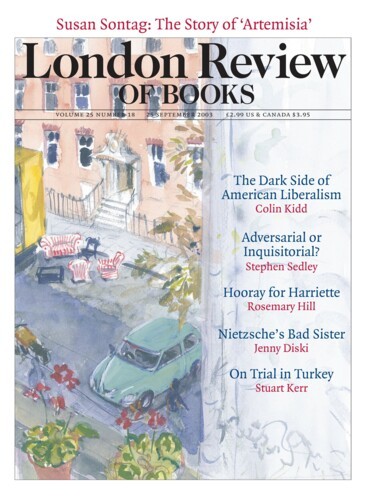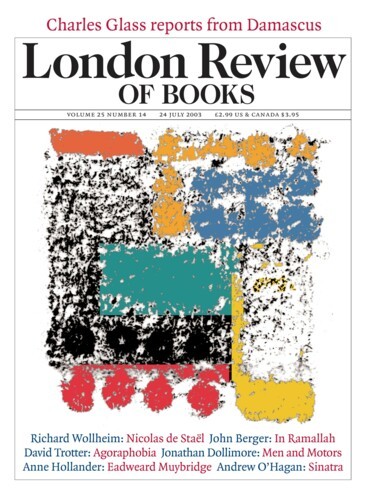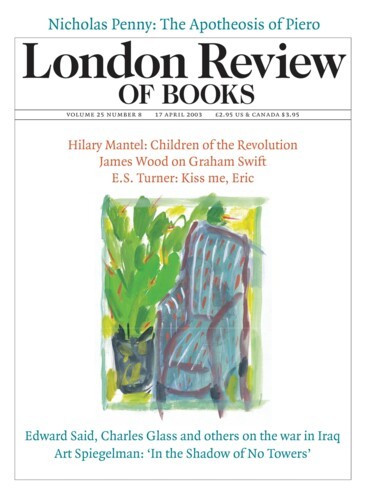E.S. Turner
E.S. Turner wrote his first article for the Dundee Courier in 1927. He contributed to Punch for 53 years, and wrote more than eighty pieces for the London Review. His last social history was Unholy Pursuits: The Wayward Parsons of Grub Street. He died in 2006.
Petting Cafés! wartime spivs and dodgers
E.S. Turner, 4 December 2003
“Outstanding among wartime shortages was common sense. Why certain acts were illegal was not always clear at the time and is now incomprehensible. The Transportation of Flowers Order, which banned sending cut flowers by rail, allowed them to be sent by petrol-wasting road transport. Under lighting restriction orders, a Naval officer at Yarmouth was fined for striking matches in a telephone box to read the dial.”
In the Breach
25 September 2003
Madame, vous fatiguez les singes: The Tower Menagerie
E.S. Turner, 24 July 2003
To kick-start a chronicle, a writer needs an attention grabber, usually a piquant item borrowed from mid-narrative. This history of the Tower Menagerie, founded 1235, begins on a winter day in 1764, when John Wesley, aged 61, arrived at the Tower with a flute-playing companion, to conduct what he called ‘an odd experiment’. The idea was to observe how the lions reacted to music,...
Bosh: Kiss me, Eric
E.S. Turner, 17 April 2003
From the 11th century to the 19th not a single Eric was to be found in England, according to the Harrap Book of Boys’ and Girls’ Names. Then in 1858 the schoolmaster Frederic Farrar, not yet a dean, published that passionately morbid tale Eric, or Little by Little. This was the book which, in the face of much mockery, put the wind up two generations of youth. Parents, seizing the...
Pieces about E.S. Turner in the LRB
Hating
Frances Donaldson, 16 October 1980
Britain lost three times as many combatant lives in the 1914 war as in the 1939 and, by the end of 1916, more than in all wars since the Plantaganets. (France lost twice as many as we did in the...
Read anywhere with the London Review of Books app, available now from the App Store for Apple devices, Google Play for Android devices and Amazon for your Kindle Fire.
Sign up to our newsletter
For highlights from the latest issue, our archive and the blog, as well as news, events and exclusive promotions.




